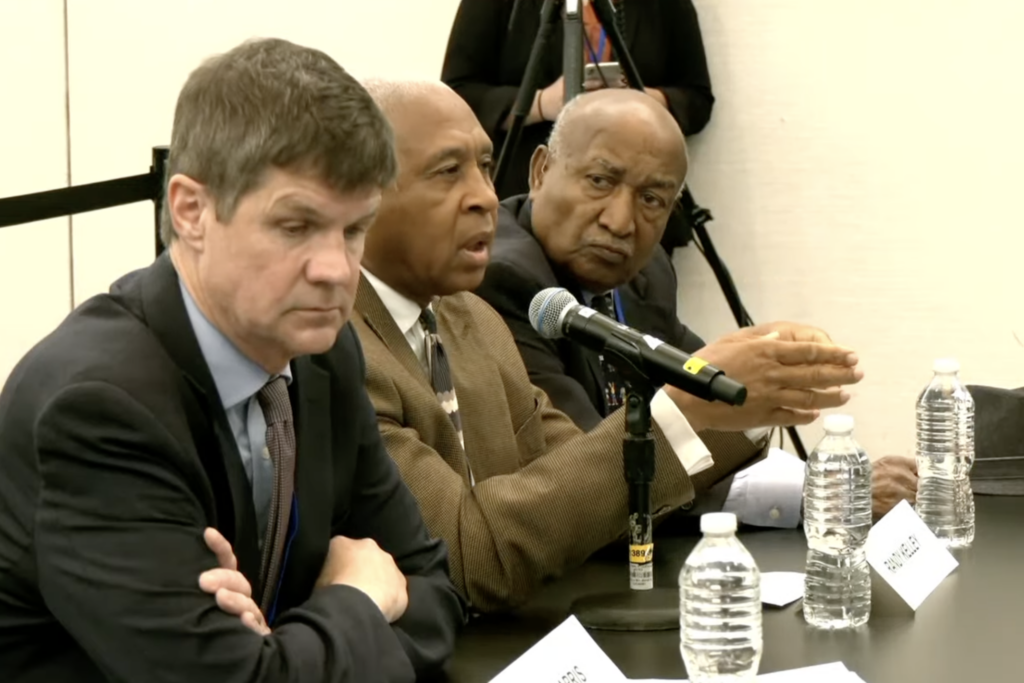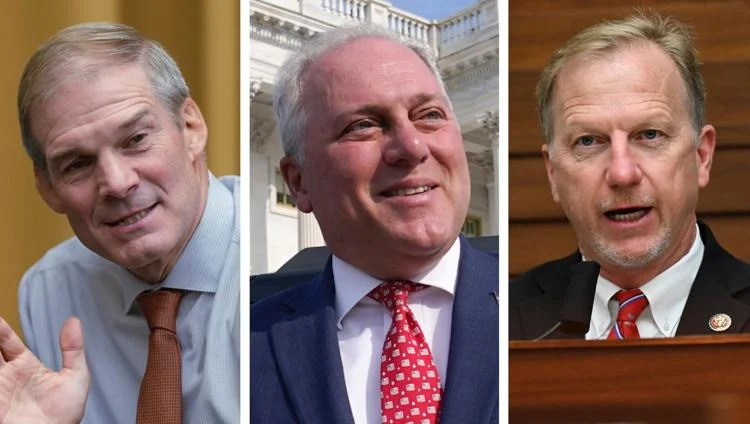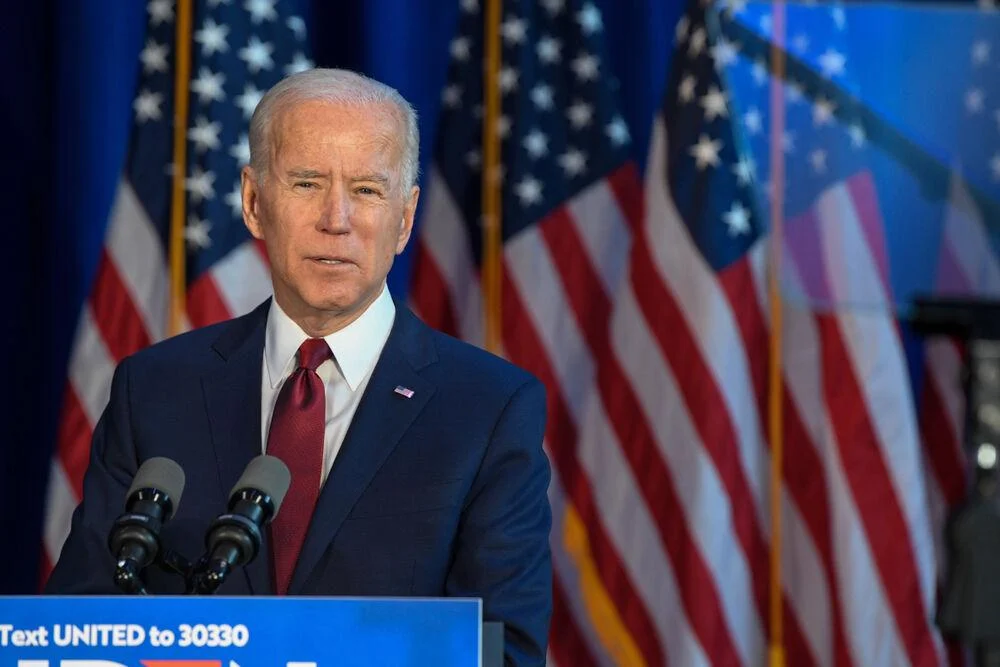Today is Columbus Day

Today, October 9, is a federal and state holiday celebrating the achievements of Italian Admiral Christopher Columbus for his 1492 discovery of the Americas on behalf of the Spanish crown. Courthouses, banks, government offices, most schools, and some businesses are closed today. It is a misnomer to say that Columbus discovered the world was round. Scholars had known that with some certainty for centuries. They also had correctly calculated the circumference of the globe, so they surmised that a westward route to India and the Orient would be impossible due to the distances involved. Columbus was born in Genoa, Italy. The Italian sailor believed that the globe was much smaller than it was, so a voyage to the west would take the mariner to India and China, which traded with Europe via a land route that went through Muslim countries. Since the Muslims and the Christians were often in a perpetual war, that land route, called “the Silk Road,” could be cut off. Leif Erikson had made the voyage to North America via Iceland and Greenland in the eleventh century, but the Vikings ran into conflict with the Algonquin people, so they did not colonize the continent – even though the first European born on American soil was a Viking with descendants in Iceland today. There is no evidence that Columbus knew of the Viking’s voyages. Columbus also did not take the same route but rather relied on favorable “trade winds” that took ships westward across the Atlantic, correctly surmising that those winds would carry him at a favorable speed. The proposal had been rejected by the Portuguese, and an effort to present it to England failed. That left Spain, which was then finishing off a six-century effort to reconquer all of its lands from the Muslims. Spanish monarchs Ferdinand and Isabella agreed to fund the expedition. Columbus left Spain on August 3, 1492, with three ships – the Nina, the Pinta, and the Santa Maria. The voyage took five weeks. Many sailors on board the ships had given up hope that they would make landfall. Then, on October 7, Columbus and his crew spotted large flocks of birds. The crew knew that birds need land to nest, so they were close to a coast – they just didn’t know what one it was. They reached the Bahamas on October 12, 1492. Columbus named the islands San Salvador. Columbus also discovered Cuba and Haiti but thought the people there were Indians as he still thought he was in some sort of barrier islands off the coast of India rather than someplace entirely unknown to civilization at the time. Columbus took three more voyages, discovering more lands, but he never found India or accepted that India was not very near. Ferdinand and Isabella promised to make Columbus a noble, ruling all the lands he discovered on behalf of Spain. By now, this had grown to a territory far larger than Spain itself, and Columbus’s enemies in the Spanish court grew as the realization of what a fantastic discovery this was grew. Many of the most powerful houses in Spain soon resented the prospect of making a foreign commoner foremost among Spanish nobles. Columbus was a sailor and a master navigator, not an administrator, so he delegated the rule of his new conquests to lesser men, who often proved incapable of the task. They often treated the newly conquered Indians brutally, arousing the ire of the Spanish Church. Reports quickly made their way to the Spanish court of Columbus’s men mistreating the Indians, and the crown became tired of Columbus and the deal they had agreed to back in 1492. Columbus was arrested for mistreating the Indians, whom the crown viewed as Spanish subjects. They brought Columbus back to Spain in chains. He would never return to the Americas – ironically named for another explorer instead of after Columbus himself. Columbus has been honored by generations of Americans for his voyages, and he is especially well-regarded by Italian Americans. The Knights of Columbus are named in his honor, as is the District of Columbia and the Nation of Columbia. Some modern historians are more critical of Columbus and denounce him for the treatment of the Native Americans. They prefer to celebrate today as Indigenous Peoples Day. To connect with the author of this story or to comment, email brandonmreporter@gmail.com.
DNC gives Alabama Democrats February deadline to pass new bylaws

by Alander Rocha, Alabama Reflector The Democratic National Committee will give the Alabama Democratic Party a chance to resolve a divisive battle over the rules and governance of the state party on its own. The DNC’s Rules and Bylaws Committee (RBC) Friday gave ADP Chair Randy Kelley a November 28 deadline to develop new bylaws and provide the DNC a list of members of the State Democratic Executive Committee (SDEC), the party’s governing body. The RBC ordered the party to hold a vote on the bylaws by Feb. 1, 2024. A resolution authorizing the action added that the RBC may take necessary action to enforce the resolution, “including but not limited to the appointment of DNC representatives.” Kim Keenan, a lawyer charged with overseeing a Sept. 8 hearing on the party dispute, said the battles stemmed from longstanding issues of representation within the state party. “I like to say that what happened here is a perfect storm of the faraway past and the near past, basically colliding with the present,” she said. Ben Harris, an attorney and ADP’s vice chair for county affairs and a lawyer, said Kelley and Vice Chair for Minority Affairs Joe Reed were prepared to pass amended bylaws that “satisfied the DNC’s requirements,” with the at-large members who were previously denied a vote. He stressed that he feels it’s important that the party come to a voluntary agreement by working together. “We need the opportunity to reach that by agreement, and not by one side winning and one side losing. We’ve had too much of that,” Harris said. A controversial May meeting The ADC in May adopted a new set of bylaws that abolished three diversity caucuses set up under bylaws adopted by the party in 2019 and reduced the power of other diversity caucuses. The 2019 bylaws emerged after a fight between Reed and then-U.S. Sen. Doug Jones over control of the party. The DNC that year ordered the party to create caucuses reflecting the diversity of the state Democratic electorate. Reed’s group opposed the bylaws, saying they unfairly reduced the power of Black voters, who provide most of the Democratic support in the state. Kelley, a Reed ally, was elected chair of the party in August 2022. The May meeting was tumultuous, and members of the affected caucuses, some of whom are Black, sharply criticized the moves, saying they stripped key groups of representation. Another complaint came over a $50 qualifying fee charged by party officials to enter the meeting, which several SDEC members said they had not been informed about previously and which some called a poll tax. ADP members opposed to the new rules soon filed complaints with the DNC. Keenan said during the RBC hearing Friday she found two issues at the heart of the conflict between the two factions of the party. The qualifying fee, she said, was a barrier to participation in the May meeting, but she doesn’t believe it was imposed for “nefarious” reasons. “People on both sides had paid the fee, but unfortunately the fee didn’t have any rule support or any objective support,” Keenan said. “So in effect, it was alleged to be a poll tax, and it does follow what happens when you have a poll tax — you cannot participate unless you pay the fee.” She said that was the “fatal flaw” in the vote on the new bylaws. While requiring the fee may not have been ill-intentioned, Keenan said, denying participation is not consistent with DNC rules. Keenan also said she could not find anything in the existing bylaws to support the fee. “Preventing that number of people from participating was probably the difference between those May bylaws passing,” Keenan said. ‘A lot of self-determination’ Keenan also said that turning diversity caucuses — youth, LGBTQ+, Native American, disabled, and Hispanic — into committees while maintaining the Minority Caucus, representing Black Democrats, was an issue. “Caucuses have a lot of self-determination ability. They are able to do things. They are able to choose their members. They’re able to move forward in a way where they have determination over who their members are and whose appointed and who’s added,” Keenan said. “But once you become a committee, that right is delegated off to the Executive Committee.” ADP’s position, she said, stems from a “unique history where Black Alabama Democrats really had to sue, protest and be activistic to get the equity that they deserved in the party.” Hawthorne v. Baker, a 1990 case which allowed Black Democrats to have self-determination, a federal court said that unless a group meets the standard that Black Democrats met, they can’t be a caucus. “And I think that’s I think that that’s mixing an apple with an orange,” Keenan said. Kelley, who attended the Friday hearing, said during the meeting he wanted to “heal and move the party forward.” In an interview after the meeting, he said the resolution was reasonable, and that the meeting “came out as well as I thought it would.” “We don’t have a problem whatsoever with changing the bylaws,” Kelley said. Kelley added that he was pleased that the hearing report found what he referred to as misinformation regarding the $50 qualifying fee, which has been characterized as a poll tax. “It was a good forum to clarify that,” Kelley said, adding that it’s been in existence for at least 30 years. ADP Vice Chair Tabitha Isner, one of the challengers, said in a text after the meeting that she appreciates the DNC trying to find a solution that is collaborative. “The challengers have been fighting for a seat at the table, and the RBC has said that we must be granted one,” she wrote. “I look forward to hearing how the DNC intends to provide the necessary oversight to this process.” Reed, who was also in attendance, took a more forceful approach and said “this issue comes down to one fundamental issue and is rooted in racism.” “There’s nothing in Alabama we’ve
Tommy Tuberville says net neutrality rules would be burdensome government involvement in broadband

U.S. Senators Tommy Tuberville and Katie Britt joined U.S. Senators John Thune (R-South Dakota) and Ted Cruz (R-Texas) in pushing back against the Federal Communications Commission’s (FCC) proposal to reinstate Obama-era broadband regulations. In a letter to FCC Chairwoman Jessica Rosenworcel, the senators warned that reviving these burdensome regulations would devastate the free market, leading to fewer choices and slower speeds for broadband customers. “Our country faces real challenges,” the Senators wrote. “A lack of public-utility regulations for the internet is not one of them. Instead, the FCC and the Biden administration should be focusing on bipartisan efforts to address real problems, such as addressing rampant waste, fraud, and abuse in the federal government’s broadband subsidy programs, and regulatory and permitting obstacles to broadband deployment, both of which divert funds and resources from the goal of connecting unserved Americans.” Net neutrality rules were passed under former President Barack Obama and then rescinded under former President Donald Trump. They could return under a new push by FCC chair Rosenworcel. The rules would reclassify broadband access as an essential service on par with other utilities like water or power. “For everyone, everywhere, to enjoy the full benefits of the internet age, internet access should be more than just accessible and affordable,” Rosenworcel said at an event at the National Press Club. “The internet needs to be open.” The proposed rules would return fixed and mobile broadband service to its status as an essential telecommunications service under Title II of the Communications Act. It would also prohibit Internet service providers from blocking or throttling lawful Internet traffic and from selling “fast lanes” that prioritize some traffic over others in exchange for payment. The move comes after Democrats took majority control of the five-member FCC on Monday for the first time since President Joe Biden took office in January 2021 when new FCC Commissioner Anna Gomez was sworn in. Rosenworcel said the FCC will vote in October to take public comment on the proposed rules. Net neutrality is the principle that internet providers treat all web traffic equally. Telecom companies say the rules can undermine investment in broadband and introduce uncertainty about acceptable business practices. Telecommunications companies argue that they should be able to control the pipes they built and own. Tuberville serves on the U.S. Senate Agriculture, Nutrition, and Forestry (AG) Committee. Tuberville has championed expanding broadband access for rural and agricultural communities. He has made that one of his 2023 Farm Bill priorities because he understands the importance of reliable internet access for successful farming operations. Tuberville is the Ranking Member of the AG Subcommittee on Rural Development and Energy. His first hearing as a Ranking Member focused on expanding broadband access for rural areas, with discussions revolving around streamlining the application and permitting process, service speeds, broadband deployment infrastructure, and prioritizing internet access to rural communities. To connect with the author of this story or to comment, email brandonmreporter@gmail.com.
Alabama to receive $1.6 million in data breach settlement

Last week, Alabama Attorney General Steve Marshall announced a 49-state settlement with software company Blackbaud for its deficient data security practices and response to a 2020 data breach that exposed the personal information of millions of consumers across the United States. Under the settlement, Blackbaud has agreed to overhaul its data security and breach notification practices and make a $49.5 million payment to the states. Alabama will receive $1.6 million from the settlement. “Data breaches are becoming far too common as well-known tech companies are facing major security breaches that directly impact businesses, organizations and ultimately, consumers,” Marshall said in a press release. “While we constantly urge consumers to be vigilant with how and when they provide personal information, companies also need to take a serious look at their technology defenses. Consumers should feel confident when making a payment, donation, or providing sensitive personal information that their personal information will not end up on the dark web.” Blackbaud provides software to various nonprofit organizations, including charities, higher education institutions, K-12 schools, healthcare organizations, religious organizations, and cultural organizations. Blackbaud’s customers use Blackbaud’s software to connect with donors and manage data about their constituents, including contact and demographic information, Social Security numbers, driver’s license numbers, financial information, employment and wealth information, donation history, and protected health information. This type of highly sensitive information was exposed during the 2020 data breach, which impacted over 13,000 Blackbaud customers and their respective consumer constituents. The settlement resolves allegations that Blackbaud violated state consumer protection laws, breach notification laws, and HIPAA by failing to implement reasonable data security programs and remediate known security gaps, which allowed unauthorized persons to gain access to Blackbaud’s network, and then failing to provide its customers with timely, complete, or accurate information regarding the breach, as required by law. As a result of Blackbaud’s actions, notification to the consumers whose personal information was exposed was significantly delayed or never occurred at all insofar as Blackbaud downplayed the incident and led its customers to believe that notification was not required. Under the settlement, Blackbaud has agreed to strengthen its data security and breach notification practices going forward, including: Indiana and Vermont co-led the multistate investigation, assisted by the Executive Committee consisting of Alabama, Arizona, Florida, Illinois, and New York, and joined by Alaska, Arkansas, Colorado, Connecticut, Delaware, District of Columbia, Georgia, Hawaii, Idaho, Iowa, Kansas, Kentucky, Louisiana, Maine, Maryland, Massachusetts, Michigan, Minnesota, Mississippi, Missouri, Montana, Nebraska, Nevada, New Hampshire, New Jersey, New Mexico, North Carolina, North Dakota, Ohio, Oklahoma, Oregon, Pennsylvania, Rhode Island, South Carolina, South Dakota, Tennessee, Texas, Utah, Virginia, Washington, West Virginia, Wisconsin, and Wyoming. The Securities and Exchange Commission (SEC) charged the company for making misleading disclosures concerning the data breach. In March, the SEC announced that the company had agreed to pay $3 million to settle the charges. “As the order finds, Blackbaud failed to disclose the full impact of a ransomware attack despite its personnel learning that its earlier public statements about the attack were erroneous,” said David Hirsch, Chief of the SEC Enforcement Division’s Crypto Assets and Cyber Unit. “Public companies have an obligation to provide their investors with accurate and timely material information; Blackbaud failed to do so.”
Anthony Daniels and Nathaniel Ledbetter denounce terror attacks on Israel

Over the weekend, Alabama House Minority Leader Anthony Daniels (D-Huntsville) and Speaker of the House Nathaniel Ledbetter (R-Rainsville) released statements condemning the horrific attacks on the people of Israel that occurred on Saturday. Minority Leader Daniels wrote on Sunday, “On one of the most joyous days in the Jewish calendar, Simchat Torah, Hamas militants launched an unprovoked, surprise attack on Israel leaving hundreds and, thousands wounded, and a region that is now plunged into war. This is terrorism, plain and simple. It cannot be tolerated and should be condemned by every member of the international community.” “My heart goes out to the thousands of families whose lives have been shattered by this brutal, cowardly attack. I share their grief and sorrow for all the innocent souls, including children and the elderly, who have been violently killed, injured, and kidnapped,” Daniels said. “I am further outraged by reports of innocent people being held hostage by Hamas and I pray for their immediate and safe return. As Americans, we love freedom, value peace, and support the right of free, peaceful people to defend themselves against unwarranted, unjust, and inhumane aggression. I stand in solidarity with the people of Israel and strongly condemn this horrific act of war and terrorism.” On Saturday, Speaker Ledbetter released a statement following the air, sea, and ground attacks launched by Palestinian militants at dawn that day. “For the past 80 years, Alabama has supported the nation of Israel, and we reaffirm our commitment today following the unprovoked surprise attacks launched by Palestinian Hamas militants,” Ledbetter said. “Alabamians continue to stand tall with our nation’s strongest and most loyal Middle Eastern ally, and our prayers of support go out to the Israeli military forces, the nation’s leaders, and all of those who lost family, friends, and neighbors to the senseless Palestinian violence.” Israel has had widespread bipartisan support from the Alabama Legislature even before its founding. “The Alabama Legislature has passed dozens of joint resolutions over the decades outlining our state’s bond with Israel, and our support for the nation, its people, and its continuing struggle to live peacefully in an often chaotic part of the world grows even stronger when events such as this occur,” Ledbetter concluded. Israel has been struck by thousands of rockets fired from Hamas in Gaza and Hezbollah in southern Lebanon. Hundreds of heavily armed Hamas commandos breached the Israeli border, slaughtering Israelis in their homes. A music festival and two military bases were specifically targeted for assault. CNN is reporting that dozens of Israelis have been taken captive and are now in various parts of Hamas-controlled Gaza. Israel has declared war – the first time since 1973 and has begun a counteroffensive. Over 700 Israelis are believed to be killed and another 2,000 wounded. Americans are believed to be among the dead and wounded. To connect with the author of this story or to comment, email brandonmreporter@gmail.com.
U.S. Speaker candidates agree to joint interview

By Brett Rowland | The Center Square Three contenders for the Speaker of the U.S. House have agreed to a joint TV interview. U.S. House Judiciary Chairman Jim Jordan, R-Ohio, Majority Leader Steve Scalise, R-La., and Rep. Kevin Hern, R-Okla., who is chairman of the Republican Study Committee, will join Fox News Channel’s chief political anchor Bret Baier at 6 p.m. ET on Monday. A conference-wide vote to select who Republicans put up for speaker is expected Wednesday. Eight House Republicans voted with House Democrats to oust former Speaker of the House Kevin McCarthy, R-Calif., after he struck a deal with Democrats to keep the federal government from partially shutting down. On Friday, former President Donald Trump endorsed Jordan to be the next speaker. Just hours after being voted out of his leadership position, McCarthy said he would not run for the position again. Republished with the permission of The Center Square.
Texas Gov. Greg Abbott: More than 50,000 illegal border crossers bused to sanctuary cities

By Bethany Blankley | The Center Square contributor Texas has bused more than 50,000 people who’ve illegally entered the U.S. and were unlawfully released into the U.S., Gov. Greg Abbott said Friday. The majority have been bused to New York City, followed by Chicago, Washington, D.C., Philadelphia, Denver, and Los Angeles. Abbott began the busing strategy in April 2022. He first sent foreign nationals who illegally entered the U.S. in Texas to Washington, D.C. Since then, over 12,500 people chose to be transported to the nation’s capital. Last year, he expanded the strategy to send people to New York City, Chicago, and, Philadelphia. Since last August, Texas bused more than 18,500 people to New York City and over 13,500 people to Chicago. Since last November, Texas bused over 3,200 people to Philadelphia. This year, he began busing people to Denver and Los Angeles. So far, more than 3,200 people have arrived in Denver since May 18 and over 940 to Los Angeles since June 14. The governor recently directed additional buses to Eagle Pass and El Paso, Texas, after a surge of people came roughly two weeks ago. He said he was sending them to self-declared sanctuary cities to provide much-needed relief to overrun Texas border towns. “Until President [Joe] Biden upholds his constitutional duty to secure America’s southern border, Texas will continue to deploy as many buses as needed to relieve the strain caused by the surge of illegal crossings,” Abbott said. Adults must sign a waiver for themselves and minors under their care, provide their Department of Homeland Security documentation, and choose which of the six self-described sanctuary cities they want to go to. Texas border mayors and county judges have been instructed to notify the Texas Department of Emergency Management of any DHS-facilitated drop-off in their communities so the agency can help move people out of Texas. The majority seeking Texas-taxpayer-funded transportation north are choosing to go to the cities of New York and Chicago, according to state data. The same is true for those arriving in El Paso. Chicago and New York City remain the primary destinations, however, Denver has been added as a third destination. The Democratic-led city of El Paso began its own busing strategy over a year ago, but it’s funded through money it receives from FEMA. The city says the current wave of people began arriving in April 2022; “the sudden surge began in late August.” The overwhelming majority are coming from Venezuela, roughly 70%; the remainder are from Ecuador, El Salvador, Haiti, Nicaragua, and Cuba. As of Friday, Oct. 6, the city of El Paso was releasing 1,534 border crossers into the community every day. Roughly 480 people are being bused to Chicago, New York City, and Denver every day from El Paso. Every day, five charter buses full of people are leaving El Paso and arriving in Chicago. New York City and Denver are each receiving three charter buses full of people a day, according to city data. Republished with the permission of The Center Square.
Court upholds Oklahoma ban on gender transitions for minors

By Kim Jarrett | The Center Square Restricting doctors and hospitals from providing gender transition treatments for minors in Oklahoma has been upheld by a federal judge. Senate Bill 613, passed by lawmakers in April, would fine healthcare providers who performed the services up to $100,000. Providers also face a prison sentence of up to 10 years, according to the bill. Five families and the American Civil Liberties Union sued the state over the bill, saying it violated the 14th Amendment’s Equal Protection Clause. U.S. District Court Judge John F. Heil III said the bill did not violate the 14th Amendment because it didn’t ban gender transition procedures outright. “Nor is it a bill that has the intent or effect of enforcing stereotypical gender norms or discriminating against those who do not conform to those norms,” Heil said in the 36-page decision. “Instead, SB 613 requires only that, to the extent an individual desires to utilize certain physiological procedures to treat the psychological condition of gender dysphoria, he or she must wait until a certain age to do so.” The ACLU of Oklahoma said the ruling is “not the end.” “Denying transgender youth equality before the law and needlessly withholding the necessary medical care their families and their doctors know is right for them has caused and will continue to cause serious harm,” the organization said in a joint statement with Lambda Legal and the law firm Jenner & Block. “We are appealing this decision that is completely out of step with all other federal trial courts and that ignores the overwhelming evidence that gender-affirming medical care is safe and effective evidence-based care.” Gov. Kevin Stitt said he was pleased with the decision. “Here in Oklahoma, we protect our kids. Plain and simple,” Stitt said.
Biden administration released billions to Iran weeks before Israeli attack

By Casey Harper | The Center Square The Iranian-backed terrorist group Hamas killed hundreds of Israelis and injured hundreds more in a barrage of surprise attacks early Saturday morning, just weeks after the Biden administration authorized $6 billion to the group’s biggest backer: Iran. The Hamas attack included a combination of thousands of missiles fired into Israel as well as Hamas terrorists who infiltrated Israel, killing and capturing civilians, according to reports from multiple news outlets and relevant governments. Iranian foreign ministry spokesperson Nasser Kanani praised Hamas after the attack. Immediately after the attacks, President Joe Biden took fire for releasing billions of dollars to Iran, a known backer of Hamas that funnels money to the terrorist group. “Just weeks ago, the Biden administration handed over $6 billion to Iran, and today, innocent Israelis were murdered by Iran-backed Hamas terrorists,” Sen. Marsha Blackburn, R-Tenn., said in a statement after the attacks. “We must continue to support our strongest ally in the Middle East and their right to defend themselves against these unprovoked, horrific attacks. I stand with Israel and join many around the world in praying for the safety and security of its people.” The Biden administration told Congress last month it released the billions of dollars that had been held up by U.S. sanctions as well as releasing five Iranian nationals detained in the U.S. in exchange for the release of five Americans detained in Iran. “Biden’s decision to release $6 billion in frozen assets to Iran serves as a stark reminder of the consequences that took place following the Iran Nuclear Agreement under the Obama/Biden administration,” Rep. Cory Mills, R-Fla., wrote on X, formerly known as Twitter. “This pattern is clear: each time funds are released to Iran, the largest state sponsor of terrorism, proxy militias in the region persistently launch attacks, aiming to destabilize and target Western allies and Americans. “Examining the precision and coordination of the recent attack, it’s highly plausible that the recent $6 billion, in addition to the many more billions made available to Iran after Biden lifted sanctions, provided the necessary funding to execute this assault,” Mills added. U.S. Treasury Under Secretary Brian Nelson said on X that the funds that were part of the September deal had not yet been spent and were reserved for humanitarian purposes only. Critics quickly pointed out that the money is fungible, and Iran’s knowledge of the coming money could have impacted how it spent other funds not under the U.S.’ watch. “All of the money held in restricted accounts in Doha as part of the arrangement to secure the release of 5 Americans in September remains in Doha,” he said. “Not a penny has been spent.” President Joe Biden addressed the attacks before reporters on Saturday. “You know, when I spoke with Prime Minister Netanyahu this morning, I told him the United States stands with the people of Israel in the face of these terrorist assaults,” Biden said. “Israel has the right to defend itself and its people. Full stop. There is never justification for terrorist acts. And my administration’s support for Israel’s security is rock solid and unwavering.” Republished with the permission of The Center Square.


